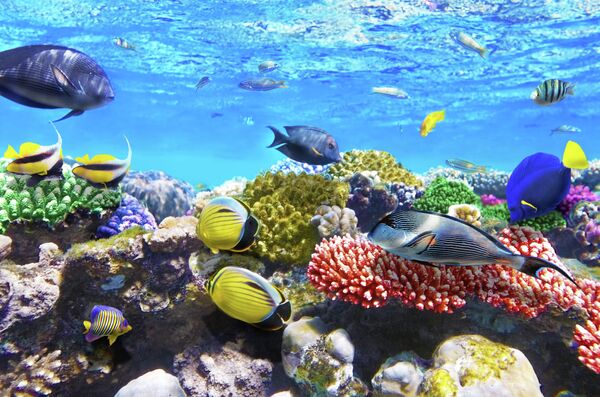MOSCOW, September 23 (RIA Novosti) – The National Geographic Society has announced dramatic expansion of its campaign to protect the oceans and their biodiversity, by urging world leaders to designate over 20 locations as marine reserves in the next five years, the nonprofit institution said in a press release.
New efforts focus on the Seychelles, northern Greenland, and South America’s Patagonia region. The goal is to inspire corresponding governments to officially protect a total area of 770,000 square miles of ocean, said former US President Bill Clinton. “Preserving our oceans is essential for protecting biodiversity,” he added in a speech at the Clinton Global Initiative in New York on Monday.
While the goal is ambitious, achieving it “will help protect the natural heritage of many of the world’s most pristine seas. Through National Geographic’s unique assets, we build coalitions that will help create and sustain these pristine areas for generations to come,” said Enric Sala, director of the National Geographic Pristine Seas project.
The campaign is part of the successful Pristine Seas project, launched in 2009. It is aimed at preserving the last remaining wild areas and their resources, by prohibiting fishing, hunting, logging, mining, and drilling in the sea areas. The project also seeks to restore unique ecosystems that have already been affected by humans, but can still be restored.
To some, marine resources may seem abundant and inexhaustible. This couldn’t be further from truth, the National Geographic Society points out. There is undeniable evidence global fisheries are collapsing, coral reefs are in danger of disappearing and marine zones are dying as a result of global overfishing, pollution and climate change, warned Terry Garcia, National Geographic’s chief science and exploration officer, underlining how important the initiative is.
Pristine Seas project helps local governments to develop viable business models, provides management assistance and monitors established marine reserves. It also undertakes scientific research to analyze each area. So far, researchers have been to 11 scientific expeditions to remote areas of ocean globally.


